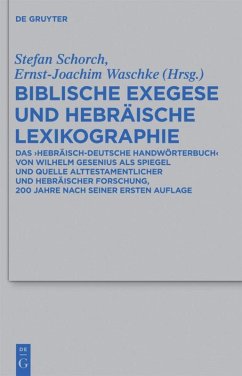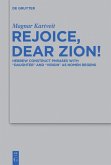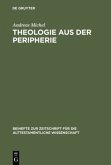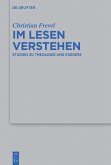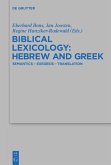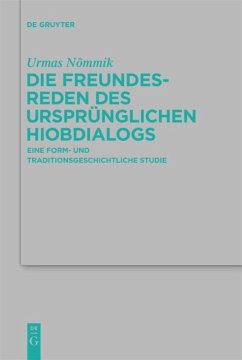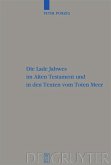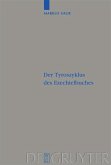This volume aims to examine the history and the impact of Wilhelm Geseniusâ??s â??Concise Hebrew-German Dictionaryâ? in the context of historical research. From the time of its initial publication in 1810 through its most recent 18th edition completed in 2010, the dictionary has been among the most important reference works for scholars in Hebrew language studies, Old Testament biblical studies, and Semitic studies. It has exerted lasting influence on Old Testament biblical exegesis, Hebrew lexicography, and Semitic language studies. The 33 essays in this volume provide a picture of the dictionary's diverse historical interrelationships and impacts.
Im Jahre 2010 jährte sich das Erscheinen des "Hebräisch-deutschen Handwörterbuches" von Wilhelm Gesenius (1786-1842) zum 200. Male. Es gibt kaum wissenschaftliche Werke, die einen so intensiven und nachhaltigen Einfluß auf die alttestamentliche Bibelexegese, die hebräische Lexikographie und die semitistische Sprachwissenschaft ausgeübt haben wie dieses Wörterbuch. Nach Gesenius' Tod zeichneten seit der 5. Auflage 1857 neue und wechselnde Bearbeiter für die Neuausgaben verantwortlich, und so ist das seit 1810 in bisher 18 Auflagen erschienene Gesenius-Wörterbuch nicht nur eine Quelle, sondern ein Spiegel bedeutender Entwicklungen in den beteiligten Fächern. Die insgesamt 33 Beiträge des Sammelbandes gehen diesen verschiedenen Aspekten aus alttestamentlicher, hebraistischer, aramaistischer, judaistischer, semitistischer und forschungsgeschichtlicher Sicht nach.
Im Jahre 2010 jährte sich das Erscheinen des "Hebräisch-deutschen Handwörterbuches" von Wilhelm Gesenius (1786-1842) zum 200. Male. Es gibt kaum wissenschaftliche Werke, die einen so intensiven und nachhaltigen Einfluß auf die alttestamentliche Bibelexegese, die hebräische Lexikographie und die semitistische Sprachwissenschaft ausgeübt haben wie dieses Wörterbuch. Nach Gesenius' Tod zeichneten seit der 5. Auflage 1857 neue und wechselnde Bearbeiter für die Neuausgaben verantwortlich, und so ist das seit 1810 in bisher 18 Auflagen erschienene Gesenius-Wörterbuch nicht nur eine Quelle, sondern ein Spiegel bedeutender Entwicklungen in den beteiligten Fächern. Die insgesamt 33 Beiträge des Sammelbandes gehen diesen verschiedenen Aspekten aus alttestamentlicher, hebraistischer, aramaistischer, judaistischer, semitistischer und forschungsgeschichtlicher Sicht nach.

